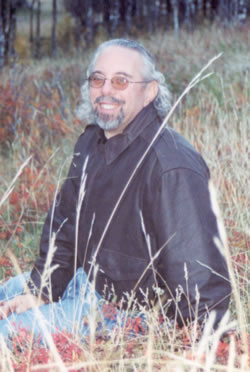The Mathematics of Poetry
first starts to add up at two
with the irony that “pair”
is a single word
(all truth lies in paradox
except this one yet we persist
to resist that which contradicts)
by three our hope is constant
we formulate our own sign of redemption
an irrational trinity of rhythm sound and image
four is only suited for play
before its corners are stretched
from a perfect square into approximate roundness
rolled and half baked into a pie of three dimensions
five significant digits are left writing this tangent
as human touch lends a congruent hand
six is too close to sex for poets to ignore
while seven offers double rhymes
and eight an obvious pun
it does not stop
until nine not because
it is the German no
but because we can not
know more or less without
somehow starting over
good poems return us to our beginning
in infinite surprise even when we figure
out it invariably points to this end
(the imaginary derives what is missing)
another line taken in two directions
stressed or unstressed our ones and zeros approach forever
multiplying by their own radical rules never alone
or empty they give ration to rhyme or
not and without our lilting iambic
without the subtle enduring
babbling binary of the bard
we have nothing
Labels: M. D. Friedman, Mathematics, poem, poetry

